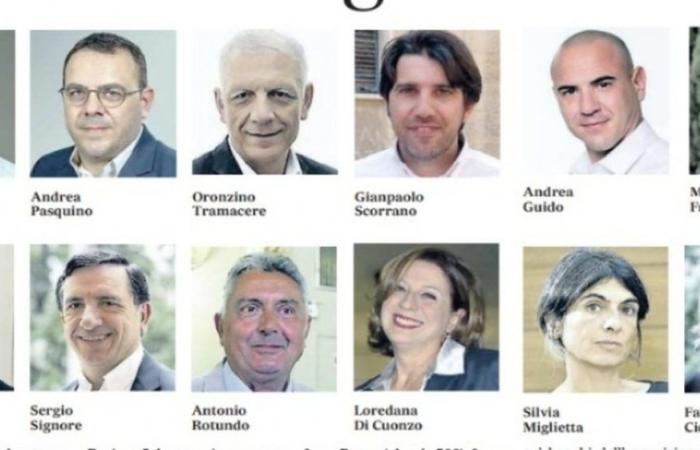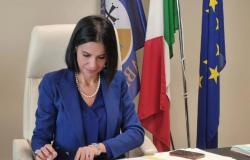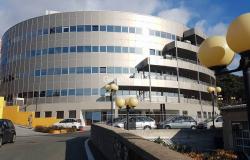The return to Carafa Palace Of Adriana Poli Bortone changes the geography of town Council. Taking part in the new city assembly – which will meet on the 28th for the approval of the TARI – will be all the main components of the centre-right which allowed the senator to obtain the mayor’s seat for the third time. The centre-left led by outgoing mayor Carlo Salvemini will go into opposition. Those arriving on the council will therefore be already well-known names in local politics and several new entries. The 32 seats will be distributed taking into account the majority bonus which favors the winning coalition with 60% of the seats based on the votes obtained in the first round: 22 for the centre-right and 12 for the centre-left.
Most voted
Until 2029 therefore, Poli Bortone will be able to count, in particular, on the support of Andrea Guido, the most voted in the coalition on behalf of UDC – Puglia Popolare with around 1,400 preferences and probable councillor. Then on the most supported party, that is Brothers of Italy, which will express four exponents, having obtained around 10% of the consensus: that is Roberto Giordano Anguilla (close to 800 preferences), Andrea Pasquino (457), Oronzino Tramacere (392) and Maria Luisa Greco (around 350) including Adriana Poli Bortone could draw to assign the delegations. There will be three seats for Io Sud, which obtained a result of 8%: Gianpaolo Scorrano (629 votes), a possible councilor, Massimo Fragola (277) and Tonia Erriquez (just over 200) will enter the chamber, while to constitute the Prima Lecce group, the list that obtained 7%, will be Bernardo Monticelli Cuggiò (695), vying for an office from the mayor, Laura Calò and Carlo Mignone (both above 450 votes). Udc – Puglia Popolare will also be able to count on the support of Gianmarco Pagliaro (629). The Salento Region Movement will be represented by Giancarlo Capoccia (671) who could take the delegations and Gianmaria Greco (above 450 votes) while for Forza Italia whose list obtained 5.25% the outgoing councilor Luciano Battista will enter (almost 700 ballots ) who could join the council and Luca Russo (over 500). Lecce Futura promotes Luigi Quarta Colosso (347) and Maurizio Botrugno (over 300). The League, with 2.37%, will only get one seat, that of former councilor Severo Martini (out of 450 ballots).
Alongside the former mayor Carlo Salvemini, there would be, sitting on the opposition benches, the exponents of the Democratic Party, Paolo Foresio, champion of preferences with 1,400 votes, Sergio Signore (close to 1,200), Antonio Rotundo (around 650), Loredana Di Cuonzo (nears 600). Two candidates were elected by Lecce Città Pubblico, which obtained 7.52%: Silvia Miglietta (bordering on 900) and Fabiana Cicirillo. Same number of representatives for Civic Conscience which is close to 7.35%: Christian Gnoni (aiming for 800 votes) and Toni De Matteis (544) would join the council. They will have only one councilor, the civic Avanti Lecce chosen by over 5% of the voters, represented by Giovanni Occhineri (close to 400 preferences), Noi per Lecce, at 4.05%, with Andrea Fiore (422), Sveglia Lecce, with 3.5%, i.e. Marco De Matteis (over 450 preferences). Nothing to do for Lecce Città Giusta, M5S and Reformists for Salvemini who will remain outside the civic assembly. Even the mayoral candidates who presented themselves in the first round against Poli Bortone and Salvemini will not enter the council. Agostino Ciucci, despite the document of understanding with the centre-right candidate, will not have a place on the benches having achieved 1.71% and only 890 votes, as well as the civic Alberto Siculella who obtained 837 equal to 1.6% of the votes preferences of Lecce voters.
© ALL RIGHTS RESERVED
© ALL RIGHTS RESERVED
Read the full article at
Puglia Newspaper






